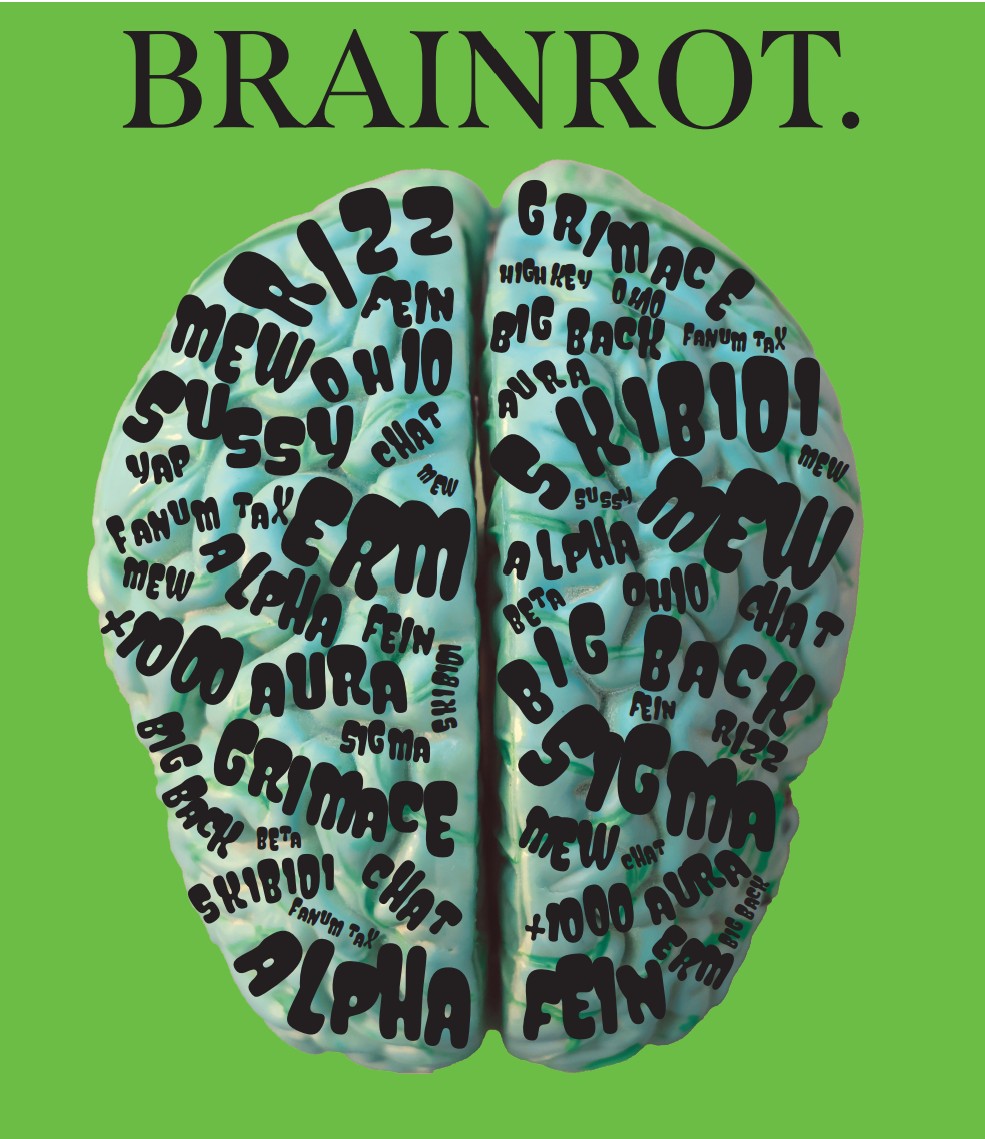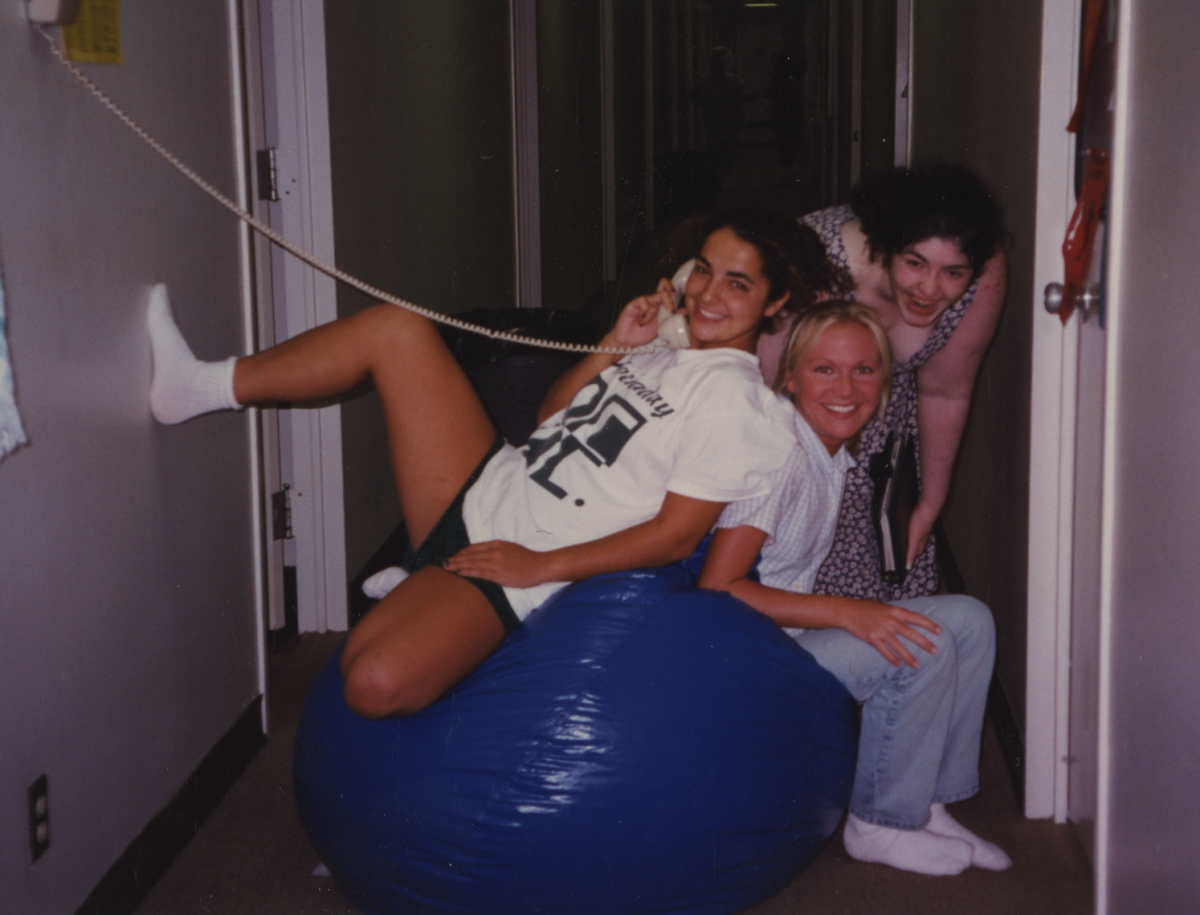It’s September 2013. Sophomore Aparna Rakesh, now sits amongst her friends, who are happily eating lunch in Dining Hall. She dives into her food, just like everyone else room. It’s what happens after the meal that’s different.
As soon as plates are empty and trays are stowed away, Rakesh goes to the restroom. She forces herself to expel she has just eaten, eradicating her body of the necessary nutrients had only just acquired. She has bulimia nervosa, an eating that causes her to avoid weight gain at all cost.
Living With An Eating Disorder
In a survey of 128 Upper School students, 11 percent of those who chose to respond answered ‘yes’ to having had an eating disorder at some point in their life. These eating disorders are classified by anorexia nervosa, bulimia nervosa, binge-eating disorder and unspecified eating disorders.
According to the National Eating Disorders Association, eating disorders are “real, complex and devastating conditions that can have serious consequences for health, productivity and relationships.” Contrary to popular belief, they are not fads or phases.
Rakesh was diagnosed with bulimia nervosa in her sophomore year.
“In my case, I was overweight for a long period of time, and then I worked out for a long period of time, and I was fine, and I was fit and I was healthy—but I got obsessed with that, and it was never enough for me,” she said. “In my mind, I was like, ‘it’s not enough, you’ve got to eat less.’ That voice overpowered rationale.”
That’s not to say, however, that people cannot suffer from self-esteem and body image issues that affect their eating habits without being clinically diagnosed with an eating disorder.
A sophomore, who wishes to remain anonymous under the alias Sylvia, remembers a year-long period in seventh grade where she was overly concerned with her body image.
“I convinced myself that I was overweight and fat by desperately trying to cut out all sugar from my diet and all forms of carbs, and then I lost 15 to 20 pounds,” she said. “Looking around at a lot of my friends and peers, I noticed that I was not as skinny as them. I convinced myself that their body was the body I should have.”
Concern over body image is not the only factor in eating disorders—relationships are affected as well. Natalie Hutson, a counselor at Walker Wellness Clinic, an outpatient treatment center for eating disorders located in Dallas, describes eating disorders as “an all-consuming world.”
“The eating disorder becomes so big that everything else in someone’s life becomes so small,” Hutson said. “People start to isolate themselves from friendships and relationships, and the eating disorder becomes the only thing that they focus on because there’s no room left for anything else.”
And Julie, another sophomore, who also asked to remain anonymous, describes a loss of control over her life when she was diagnosed with anorexia nervosa in the fourth grade.
“It feels like a dream; it doesn’t feel like real life,” she said. “You want to get better, and you know that you’re really harming yourself and people around you, but you just can’t control it.”
Julie also notes that her eating disorder stripped her of her childhood. “There’s certain aspects where you don’t feel like a kid anymore,” Julie said. “Growing up, I felt like I didn’t enjoy certain events because there’s this anxiety around food.”
Live to Lie, Lie to Live
“Eating disorders are very secretive in that people do everything they can to protect it,” Hutson said. “There’s intense fear of it getting taken away, as miserable as it may be.”
The obsession over eating disorders also contributes to a certain level of shame.
“I didn’t want my parents or friends to know,” Sylvia said. “It seemed shameful to try and achieve this ideal body type, despite being shamed if you don’t have it.”
In her experiences, Hutson has observed the shame that often coincides with a fear that people would find out about the disorder. “A lot of that is because they are ashamed of what they are doing, sometimes it’s because they fear that if people knew about it, they would try to take it away,” she said.
To protect their eating disorder, people will go to great lengths. This typically includes lying to parents, friends, teachers and significant others.
“I would tell my parents I had eaten; I would lie to my friends and say that I had eaten during class or in a passing period or before school,” Julie said. “I would hide food in sleeves if someone gave me food. [There was] a lot of playing with food, too, to make it look like I had eaten the food.”
But the eating disorder eventually takes a toll on the body, due to the lack of proper nutrients. Although Rakesh believed she was “good at keeping it under wraps,” her parents eventually found out.
“I started losing a lot of hair because I was malnutritioned. I was getting tired a lot because there was nothing keeping me awake really, and my body started to feel weak,” she said. “[There was] my loss of hair and the yellowing of my teeth, and I started to look kind of sickly.”
These factors led her parents to question her health, and eventually led to her treatment.
“[It] made me realize that there are other ways to handling this, but that took me a while, and it took me a long time to wean off of it,” Rakesh said.
The lying that eating disorders cause highlights the effect they have, not only on one’s body but also on one’s personality.
“We work with girls and women who are very honest people, but they will lie to us, family and friends in order to protect the disorder, which is really out of character for them because typically they tend to be really honest individuals,” Hutson said.
The Influence of Media
According to the NEDA, there are several social factors that contribute to eating disorders. These include, but are not limited to, cultural pressures that glorify “thinness” or muscularity and place value on maintaining the “perfect” body, narrow definitions of beauty that include only women and men of specific body weights and shapes, cultural norms that value people on the basis of physical appearance and not inner qualities and strengths and stress related to racial, ethnic, size/weight or other forms of discrimination or prejudice.
Lauren Smolar, the helpline manager at the NEDA, agrees that these factors can cause eating disorders.
“[For] people who are exposed to those images, if they don’t look like that then it’s either they’re not trying hard enough or that they’re lazy,” Smolar said. “Those types of messages can really affect somebody in a lot of different ways, and it can increase their risk of getting an eating disorder.”
Hutson, on the other hand, believes that eating disorders are caused by a lot more than media and popular culture.
“If the media had that big of an influence, every woman in America would have an eating disorder,” she said. “But I think that somebody who is already predisposed to that, whether having anxiety disorder or depression, it can send them over the top, whereas someone else can see all those messages and still not have a sense of needing to control their body in that way.”
Despite the media’s influence, Rakesh emphasizes the importance of self-acceptance.
“There’s just so much social pressure on what a girl should look like, and I think that can brainwash people. For me, I had an expectation of myself, and I wanted to live up to that. But my expectation was unreasonable, especially for my body type,” she said. “I had to realize that, ‘this isn’t healthy for me.’ It’s okay to not be stick-skinny.”
Overcoming the Challenge
Eating disorders are a “mental civil war,” Rakesh said. “It’s not what you should be doing, but in that state of mind, it’s something that you want to be doing. It’s hard to find the medium between the two and to find the rationale.”
Rakesh no longer suffers from an eating disorder and stresses the significance of a positive perspective when diagnosed with one.
“Don’t look at it as a weakness. You can beat yourself up over it because you feel weak and you feel like there’s something wrong with you, but don’t look at it like that,” she said. “Look at it as a challenge that you need to overcome. Know that there is a lot at the end of the tunnel, have faith in yourself and don’t be afraid to ask for help.”
Although Julie is also no longer diagnosed with her eating disorder, she still feels the mentality of it sometimes. This did not, however, prevent her from overcoming the difficulty of having an eating disorder.
“You didn’t win,” she said, in response to the struggle her eating disorder caused her.
While individual students struggle to conquer their eating disorders, Hockaday must also commit to the cause.
Lower and Upper School health teacher Rebekah Calhoun emphasizes education of eating disorders.
“Hockaday tries to emphasize fitness and overall good health for its students. We hope by having a focus on developing good health habits for a lifetime that we give students the skills they need to protect and care for themselves,” Calhoun said. “I hope the entire community always strives to nurture and care for its members and help them as needed.”
Hockaday promotes this ideal not only through the Physical Education Department, but also through the Cornerstone of Courtesy by fostering a welcoming community for students facing different challenges—including eating disorders.
“Everyone is facing something,” Hutson said. “We all go through trials in our lives, and it’s different for different people, and to not make assumptions about what someone’s life is like just by looking at the things on the outside.”
- Erin Thomas













